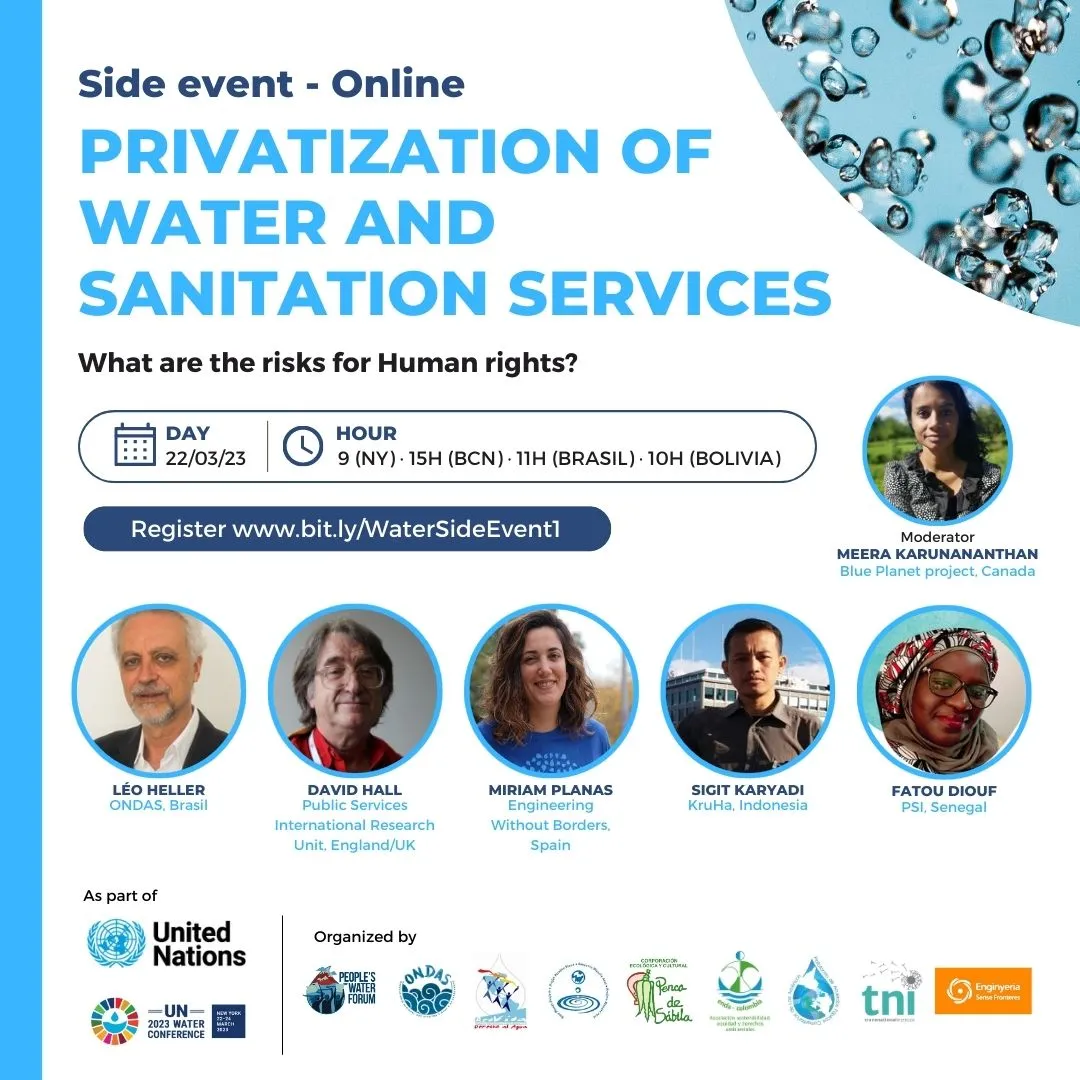
By Babatope Babalobi
The United Nations 2023 Water Conference opened today in New York, United States with water activists lamenting its alleged focus on strengthening private sector participation in the management and delivery of water services, as opposed to increasing public management of water utilities.
Making opening remarks at a side event on ‘Privatization of Water and Sanitation Services: What are the risks for Human rights?’, Meera Karunananthan, of Blue Planet Project, Canada said: A lot of the discussions in this conference has been around how to bring the private sector into implementation of sustainable development goals 6 and 17 which deals with water and sanitation as well as partnerships respectively; for us this is alarming.
‘The combined agenda of SDG 6 and SDG 17 has guided strategies and calls for strengthening the role of the private sector in water services, but this is often done uncritically and without assessing the potential impacts of these strategies on the realization of the human rights to water and sanitation’.
Against this backdrop, water activities organized todays’ event which reflected on the history of water privatization around the world. Its organizers are: Ondas Rede Interamericana de Vigilância para a Defesa e o Direito à Água; Blue Planet Project; Corporación Ecológica y Cultural Penca de Sábila, Colômbia; Ingeniería sin Fronteras.
One of the speakers at the meeting- Fatou Diouf of Public Services International, Senegal, gave a scanting report on water privatization in Senegal, a West African country, saying it has failed to make water more accessible, while making it more unaffordable. According to her:
- Before water privatization in Senegal, water supply was managed by the communities and bills were affordable. Also, the community managers ploughed their profits to building social infrastructure like schools, and health centers, while religious places had free access to water.
- Several private companies including Suez have been involved in water privatization in Senegal.
- The 15-year privatization contract by the national body – SONES with the private company- Suez was not made public despite demands by civil society.
- All the private companies refused to make investment in water infrastructure in urban and rural areas.
- The Senegalese government is over protecting Suez and have ignored several actions taken against the company.
- The cost of water is presently very high in Senegal and not affordable to everyone.
- The private company exploited workers in the water sector and paid them poor salaries.
- A few of the activist workers that agitated against the water privatization were victimized and transferred to remote areas.
Leave a Reply